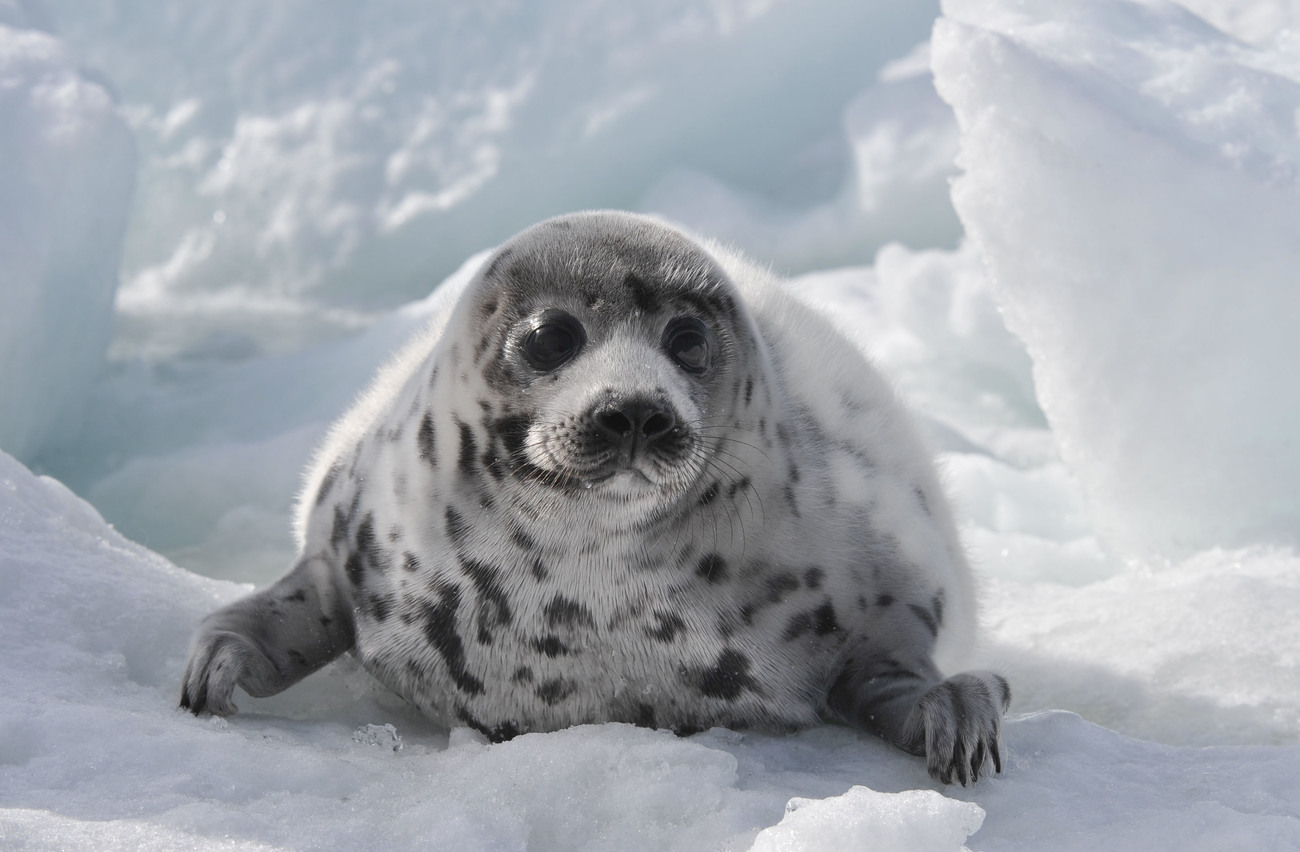Blog
Long’uro: one elephant’s story of immense resilience
Read morecould 2020 finally bring an end to the commercial seal hunt in Canada?

For most of us, 2020 has not exactly gotten off to a promising start. In fact, it will likely go down as one of the most challenging years in our collective history. And in the midst of a global pandemic and the massive economic upheaval that has ensued, I was admittedly surprised when so many of our supporters took the time to contact us and ask “What about the Canadian seals?”
Having worked for over 22 years on IFAW’s founding campaign to end the commercial seal hunt in Canada, it is heartening to know that so many of you still care passionately about this issue. Thank you. Not only was this issue central to IFAW’s initial founding over fifty years ago, but it continues to receive collective support by so many committed to ending this brutal practice.
The annual hunt for harp seals in Canada, with a quota of 400,000 individuals, has long been the largest marine mammal slaughter on earth. This is in no way a distinction worthy of Canada’s progressive culture. Every spring, as an organization confronting this issue now for five decades, we face the same questions:
Thankfully, though, this year was different. Just as seal mothers were about to give birth, COVID-19 was upon us, affecting the global populace in a way unlike anything in recent history. As the virus began to spread across Canada, businesses were closed and restrictions put in place to slow the spread. Two seal processing plants in Newfoundland were shuttered—indefinitely. Training workshops for commercial seal hunters were postponed, and ultimately cancelled. The opening of several fisheries, including those involved in the seal hunt, were delayed. This delay, however, has proven to be a lifesaver for tens of thousands of newborn seals. For although the commercial seal hunt in Newfoundland has not officially “opened” yet, it is now essentially over. By now, harp seals have begun their migration northward to their summer feeding grounds in the Arctic, out of range of Canada’s East coast hunters. This year they will be safe.
Preliminary figures from Fisheries and Oceans Canada suggest the 2020 commercial seal hunt in the region will be the lowest kill ever recorded by far. To date, only 390 seals have been reported killed in Newfoundland and Labrador, the province that typically makes up a majority of the hunt. Compared to the 32,073 reported killed in the same region last year, and the 82,740 killed in 2017, this is a massive decrease. According to government officials, a “minimal” number of seals were indeed killed in other regions of Canada, but the numbers are so low that they cannot be disclosed under federal privacy laws.
These numbers give me hope, and most importantly, they give the seals an opportunity for life.
Let me be clear. The commercial seal hunt in Canada has been on a declining trend since 2009. For decades, IFAW has worked tirelessly to end this hunt by documenting first-hand video evidence, advocating for the closure of international markets for seal products, and lobbying the Canadian government to end its financial support for this industry. The strategy is comprehensive, it is ongoing, and we will never cease until the hunt is ended for good.
So where do we go from here?
As we rebuild our economy post-Covid-19 and reach some sort of a new normal, we have an opportunity to change our relationship with nature which includes, in large part, our oceans and its rich wildlife. We must take advantage of this critical opportunity.
We will continue to press the government of Canada to end support for commercial sealing, and in its place, we will encourage supporting humane, sustainable initiatives that benefit both our oceans as well as the communities that rely upon them. Canada has spent 25 years and hundreds of millions of dollars in a misguided effort to revive a commercial sealing industry that is not only inhumane, but unnecessary and goes against the principles of a progressive nation. The experiment of seal hunting has failed, and it would be foolish to travel down this road again. In this day and age, there is simply no need for such a practice which is so ecologically wasteful and which benefits so few.
What we need instead is greater support for initiatives that restore and rehabilitate our ocean ecosystems, not further dismantle it. For example, our collective energy should be focused on reducing the devastating impacts that result from lost and abandoned fishing gear (also known as “ghost gear”) and single-use plastics that are so detrimental to marine life. These discarded nets, fishing lines, and plastics entangle and drown countless fish, birds, marine mammals, and other life each and every year. It will only get worse until we force a collective change.
This year has demonstrated gloriously that Canada does not need a commercial seal hunt. Our ecosystems, our economy, and our international reputation will benefit and thrive in the absence of such a hunt. We have been handed an opportunity for transformative change. Let us now embrace new solutions, innovative approaches, and a renewed relationship with the natural world.
-Sheryl Fink, IFAW Campaigns Director Canada
Every problem has a solution, every solution needs support.
The problems we face are urgent, complicated, and resistant to change. Real solutions demand creativity, hard work, and involvement from people like you.
Unfortunately, the browser you use is outdated and does not allow you to display the site correctly. Please install any of the modern browsers, for example:
Google Chrome Firefox Safari